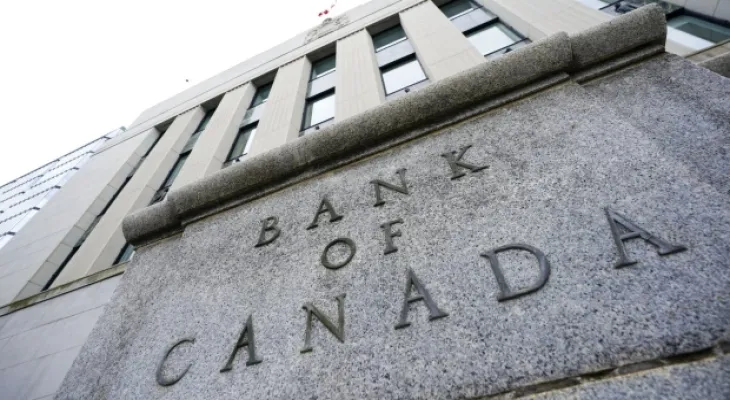Search here
Newspaper
Search here

Arab Canada News
News

Published: July 22, 2024
Economists and market watchers are betting that the Bank of Canada will deliver another interest rate cut this week amid growing evidence that inflation is sustainably declining.
Expectations that the bank will cut its lending rate when it releases its scheduled announcement on Wednesday have increased since last week's release of the latest inflation report from Statistics Canada, which showed that annual inflation fell to 2.7 percent in June.
The inflation reading was lower than the 2.8 percent forecast by markets and helped build confidence that the Bank of Canada may be preparing to cut interest rates for the second time, in addition to the 25 basis point cut announced last month.
Royce Mendes, managing director and head of macro strategy at Desjardins, said, "I think it is very likely that the Bank of Canada will cut interest rates again next week. It really wouldn’t make much sense from a strategic standpoint to cut rates by just 25 basis points and then leave it there to see how the economy responds, as that wouldn't really provoke much change in the trajectory of the economy or inflation."
"So it has always made sense that the Bank of Canada would likely cut rates at least two consecutive times before pausing. And now the recent data has reinforced this view."
The rate cut last month, which lowered the central bank's key interest rate from five to 4.75 percent, was the first in more than four years.
Mendes noted that in addition to the recent inflation report, the latest data showing rising unemployment rates along with weak growth forecasts from Canadian businesses all support the likelihood of another cut.
And while inflation is still above the Bank of Canada's target of 2 percent, Mendes said he believes that delaying for too long could have negative consequences.
Mendes added, "Interest rates at their current levels are actually very restrictive. You can see that in consumer spending trends. You can see it in the housing market."
He continued, "I would say that if (the Bank of Canada) does not cut next week, it would indicate a much greater willingness to push the economy into recession, just to reduce inflation by a few tenths of a percentage point more."
The latest report from Statistics Canada on retail sales released on Friday showed that Canadians managed to curb their spending in May, as retail sales fell by 0.8 percent to $66.1 billion.
The agency stated that sales declined in eight of the nine subsectors tracked.
Mendes said, "What the Bank of Canada is trying to do is simply reduce the amount of constraints it is placing on the economy. It's not trying to stimulate the economy; it's just trying to lessen the amount of headwinds it’s providing," adding that a second rate cut might make Canadian consumers feel more confident about spending again.
The latest data on the Canadian labor market shows the economy faltered in June, losing 1,400 jobs while the unemployment rate rose to 6.4 percent, up from 6.2 percent in May.
The June result is the highest unemployment rate reading since January 2022, another indicator that increases the odds of the Bank of Canada cutting rates this week.
However, while most market watchers believe that a rate cut will occur this week followed by additional cuts later this year, this view is not unanimous.
Clay Jarvis, a mortgage and real estate expert at NerdWallet Canada, said that this week's decision could go either way.
Jarvis said in a note, "Given how cautious the bank is, cutting the overnight rate while inflation is still significantly above 2 percent would be somewhat unprecedented."
He added that if the cut happens, it is unlikely that a 25 basis point reduction in variable rates would be enough to make a significant difference in the Canadian housing market as buyers grapple with the prospect of higher mortgage payments.
A survey conducted by CPA Canada (an organization representing professional accountants) and BDO Debt Solutions shortly after the interest rate cut in June found that half of Canadians say that rising interest rates have negatively impacted their debt burdens, with seven out of ten saying that the June cut had a negative effect on their debt loads. There is no impact on their financial outlook.
The survey also found that 52 percent of respondents believe that ongoing rate cuts will not be sufficient to alleviate financial pressures.
Comments